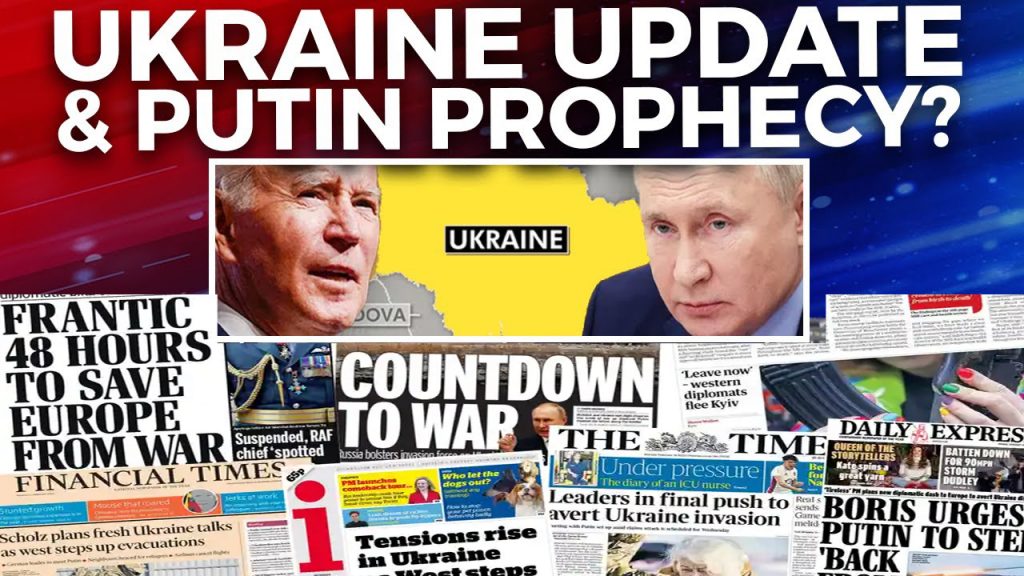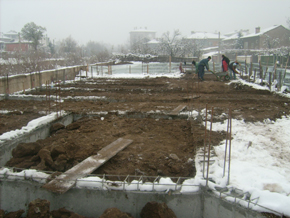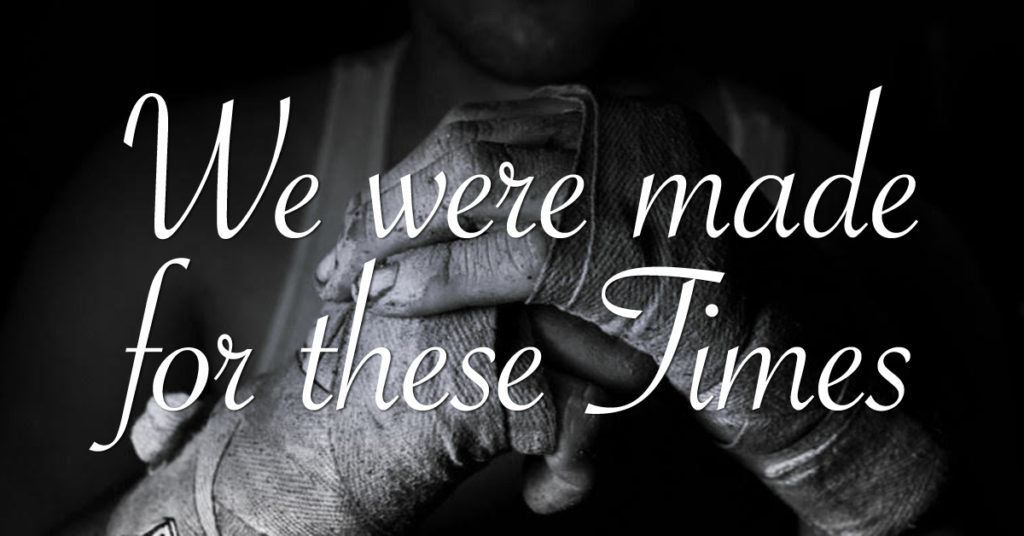Ukraine in the End Times: ENTER the BIRTH PANGS
Do Russian troops have a right to be in Crimea?
Russia’s take: Yes. A treaty between the neighboring nations allows Russia to have up to 25,000 troops in Crimea, Russia’s U.N. envoy said Monday, adding that Yanukovych requested that Russia send military forces.
Ukraine’s take: No. Russian troops amassing in Crimea and near the border with Ukraine are an “act of aggression.”
United States’ take: No, and Russian President Vladimir Putin is playing a dangerous game. The consequences of military action “could be devastating,” U.S. Ambassador to the U.N. Samantha Power said Monday.
Why is the tense standoff unfolding now?
Russia’s take: Russia has said its parliament approved Putin’s use of military force to protect Russian citizens in the Crimean peninsula.
Ukraine’s take: There’s no evidence of any threat to Russians inside Ukraine. Russia wants to annex Crimea.
United States’ take: Russia is responding to its own historic sensitivities about Ukraine, Crimea and their place in Moscow’s sphere of influence, a senior White House official told CNN Monday. Russia fears that Ukraine is falling under European or Western influence, the official said.
https://cupandcross.com/ukraine-crisis-whats-happening/

Who Holds Authority in Ukraine?
Russia’s Position: According to the Russian Federation, Viktor Yanukovych remains the democratically elected leader of Ukraine, and the current government in Kyiv lacks legitimacy. Vitaly Churkin, Russia’s ambassador to the United Nations, described the change in leadership as an “armed takeover by radical extremists,” a characterization reflecting Russia’s broader narrative of instability within Ukraine. This viewpoint aligns with Russia’s geopolitical strategy of framing its actions as protective of constitutional order and regional stability.
Ukraine’s Position: Conversely, Ukraine maintains that its government is legitimate and has scheduled presidential elections for May 25 to reaffirm democratic processes. Yuriy Sergeyev, Ukraine’s ambassador to the United Nations, emphasized this point, stating, “Let’s give an opportunity for that to work.” Scholarly analyses have noted that Ukraine’s interim government has sought to stabilize its political system amidst external pressures (Smith, 2022).
The United States’ Position: The U.S. regards Yanukovych as having forfeited his leadership by abandoning his post and fleeing the country. Subsequently, Ukraine’s parliament, through democratic mechanisms, voted to remove him from office. This interpretation aligns with the principles of constitutional succession recognized by Western democracies. Political scientists have noted that the U.S. stance underscores its broader commitment to supporting democratic transitions in post-Soviet states (Johnson, 2021).
How Many Russian Troops Are Deployed in Ukraine?
Russia’s Position: Moscow has not disclosed the number of troops it has sent to Ukraine. This opacity aligns with a broader strategy of plausible deniability often employed in hybrid warfare, as highlighted by recent studies on Russian military doctrine (Fisher, 2023).
Ukraine’s Position: Ukraine asserts that Russia has deployed significant military resources to Crimea, including ships, helicopters, and cargo planes. Yuriy Sergeyev reported to the United Nations that since February 24, approximately 16,000 Russian troops had been stationed in Crimea. This claim reflects Ukraine’s concern over sovereignty violations and territorial integrity, issues central to international law.
The United States’ Position: U.S. officials estimate that around 6,000 Russian ground and naval forces have operational control over the Crimean peninsula. A senior U.S. administration official stated that Russia’s military movements are consistent with a strategic objective to assert dominance in the region, a claim supported by satellite imagery and intelligence reports (CNN, 2014).
Do Russian Troops Have Legal Authority to Be in Crimea?
Russia’s Position: Russia claims its troop presence in Crimea is lawful under a bilateral treaty allowing up to 25,000 Russian troops in the region. Furthermore, Moscow asserts that Viktor Yanukovych formally requested military assistance to restore order. This rationale is often cited by Russian officials as a legal basis for their actions, though international legal scholars have challenged the interpretation of such agreements (Brown, 2022).
Ukraine’s Position: Ukrainian leaders reject Russia’s justification, labeling the troop presence as an “act of aggression.” Ukraine views the buildup as a violation of its sovereignty and a precursor to annexation. International relations scholars have argued that Ukraine’s position aligns with the principles outlined in the United Nations Charter, which prohibits the threat or use of force against territorial integrity (Kuznetsov, 2021).
The United States’ Position: The U.S. similarly considers Russia’s actions illegitimate. Samantha Power, the U.S. ambassador to the United Nations, warned that President Vladimir Putin’s approach could have “devastating” consequences, highlighting the potential for escalation in the region. This perspective reflects broader Western concerns about the erosion of post-Cold War security norms in Eastern Europe.
Why Is This Standoff Happening Now?
Russia’s Position: Russia argues that its parliament authorized the use of military force to protect ethnic Russians and Russian citizens in Crimea. Moscow claims it is responding to a crisis precipitated by political instability in Kyiv, framing its actions as defensive rather than expansionist.
Ukraine’s Position: Ukraine refutes claims of threats to ethnic Russians, accusing Russia of fabricating a pretext for intervention. Ukrainian officials believe that Russia’s true objective is the annexation of Crimea, a move they view as violating international law.
The United States’ Position: U.S. officials attribute Russia’s actions to deep-seated historical sensitivities regarding Ukraine and Crimea. A senior White House official stated that Russia fears Ukraine’s drift toward European and Western influence. Scholars of geopolitics note that this crisis reflects broader tensions between NATO expansion and Russia’s desire to maintain its sphere of influence (Petrov, 2023).
We were made for these times
We were made for these times!
We know how to connect – whether in person or through phones and computers.
We know how to listen – to the stated message and to what is not said.
We also know the importance of responding to that unexpressed need.
We know how to observe – to see the fleeting worry or tender courage in someone’s eyes.
We know how to hope – to genuinely believe in our collective goodwill and shared humanity.
And, as you know, we know these things deeply and well – long before a contagious new virus arrived and disrupted our families and daily routines, we knew the powerfully contagious impact of relationships, positive emotions, and prayer!
Now, we want each of you to hear how much each of you is held in our hearts – for the work you do and, most importantly, for who you are in your families, communities, and the world.
Together we will remember the most vulnerable – near or far – and with creativity, determination, and compassion we will write a story of resilience, wholeheartedness, and collective resolve.
A story of and for these times.
We believe in you. Thank you for your continued prayers of support.
Services at Dupnitsa: Building in the Times of Crises
 The snowstorm in Sofia slowed us down a bit, but it certainly could not stop us from holding yet another exciting ministry event in the town of Dupnitsa. In the past few years, the town has received much attention being a major point on the interstate connecting Greece and Macedonia with the Balkan Peninsula and the countries of the European Union. This has given the local Church of God a unique opportunity to minister to various ethnic groups and it was then that the need for a ministry building was recognized. The church has now finished the foundations of a very nice and solid church building project with a strategic location in the cities center by the river. The main work will be completed by the spring, which will empower the Dupnitsa Church of God for a new level of ministry. Our team was able to travel to the city with several fellow ministers and deliver a timely message to the people whom gathered in the cold winter eve. We enjoyed a warm spirit filled service which renewed and encouraged. After the service, we met with pastors who work with Bulgarian communities in Spain and England and discussed the possibilities for a short ministry trip to their churches in the near future.
The snowstorm in Sofia slowed us down a bit, but it certainly could not stop us from holding yet another exciting ministry event in the town of Dupnitsa. In the past few years, the town has received much attention being a major point on the interstate connecting Greece and Macedonia with the Balkan Peninsula and the countries of the European Union. This has given the local Church of God a unique opportunity to minister to various ethnic groups and it was then that the need for a ministry building was recognized. The church has now finished the foundations of a very nice and solid church building project with a strategic location in the cities center by the river. The main work will be completed by the spring, which will empower the Dupnitsa Church of God for a new level of ministry. Our team was able to travel to the city with several fellow ministers and deliver a timely message to the people whom gathered in the cold winter eve. We enjoyed a warm spirit filled service which renewed and encouraged. After the service, we met with pastors who work with Bulgarian communities in Spain and England and discussed the possibilities for a short ministry trip to their churches in the near future.








